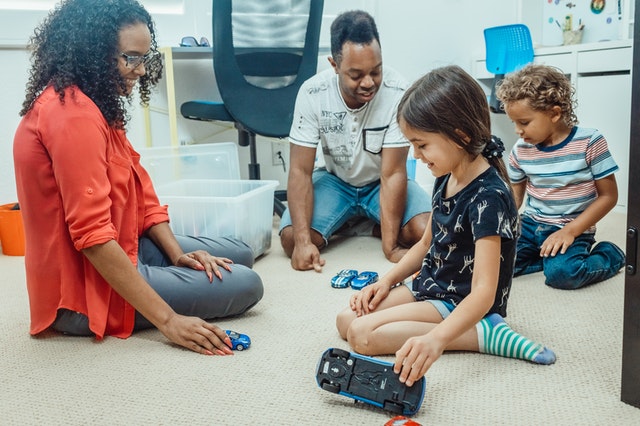Each child is unique and learns at a different pace, so what might work for one of your children will not necessarily mean you can adopt the same learning method to develop your child’s skills. It is all about being patient and allowing your child to thrive, so that later on in life they will have the necessary tools they need to survive and be successful.
Identify Their Needs
Knowing what learning difficulties they have will help you to establish what sort of encouragement they will need and how they are able to learn. Are they more of a visual learner whereby the use of images can be helpful as a visual tool, or do they respond better to audio words that are answering questions through speech? Identifying what learning needs they will require at school will be useful for you as a parent to know what sort of resources they are going to need.
Understanding The Different Learning Needs
Once you have determined which learning difficulty your child has it will be a lot easier to understand what they require. Distinguishing between the different learning difficulties will be useful.
Autism - Your child may find it difficult to communicate with other people and understand how they are feeling. It may take them a little longer to process information so patience will certainly be key. Having a routine can help as they may become more anxious when they are in an unfamiliar situation.
Dyscalculia - Is when your child struggles to process numbers, so will undoubtedly have difficulty with subjects like math. Using a calculator from a young age can help to solve basic math problems.
Dysgraphia - You may notice that your child struggles to write coherently and will likely write text that is difficult to understand. Using a laptop can be helpful to enable your child to differentiate between the different letters.
Dyslexia - This can affect how your child is able to process the words that are written down on a page and may struggle with being able to spell, write and read aloud. With encouragement and patience you can help them gain confidence particularly when they are in a class with other pupils that do not suffer from Dyslexia.
Dyspraxia - If they suffer from Dyspraxia they find it difficult to write or communicate effectively. This is due to how the muscles in the hand can suffer from discomfort or pain when holding a pen or pencil. Hand eye coordination movements will be affected as a result, so verbal learning may be a better option if their speech is not also affected.
Professional Assistance
Once you have established that your child is learning at a different pace it can be worthwhile to visit the doctor to get a confirmed diagnosis and ensure there are not any medical issues that are causing your child problems.
To encourage your child to get through any obstacles they encounter with learning it can also be useful to use Pediatric Speech Therapy to boost their learning skills. With the help of a qualified speech therapist they can help provide various exercises that will help boost your child’s confidence and enable them to learn at their own pace.
Provide An Understanding and Confident Environment
Providing your child with a supportive, encouraging and patient attitude will certainly help them to learn at their own pace and will give them a much needed boost. Once they realize they are learning at a different pace from their peers at school this may cause them to feel more anxious and self aware about asking questions in class if they do not understand something. So you want to ensure that they feel comfortable in their own skin and realize that there is nothing wrong with learning at a different pace, and that it does not make them any less intelligent.
Join Support Groups
It is certainly a good idea to join a support group of parents whose child/children experience the same learning difficulties. This will allow your child to be surrounded by other children who are experiencing the same thing and will enable them to feel less isolated and prevent issues with mental health from a young age. It will also be beneficial for yourself as you will be able to interact with other parents who have experienced the same thing as you and may have tips or suggestions that could work for your child.


